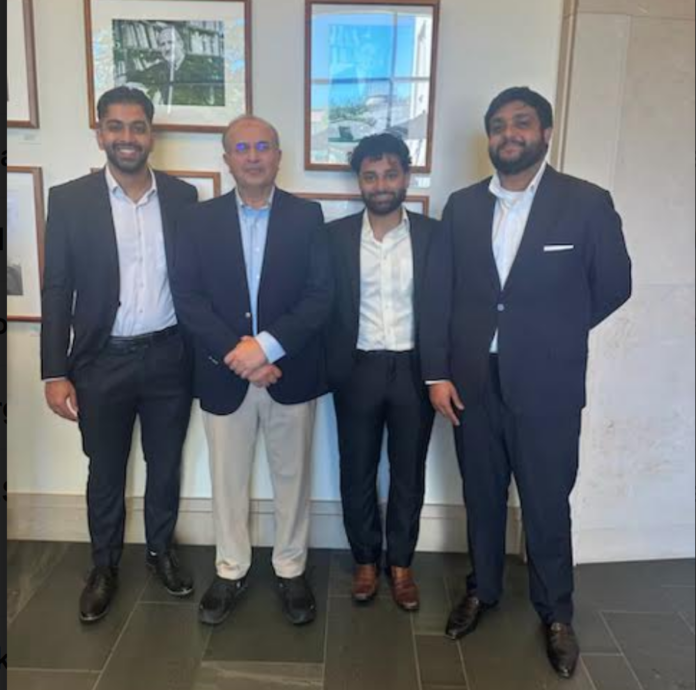
Earlier this month, Harvard Law students had the unique opportunity to engage with the jurisprudence of a developing country in the form of a visit from Justice Syed Mansoor Ali Shah, Senior Puisne Judge of the Supreme Court of Pakistan, to Harvard. Justice Shah spoke at a series of events and faculty seminars, many of which revolved around the principles of progressive jurisprudence in Pakistan and the country’s effort to fight a challenging backlog of cases through the use of alternative dispute resolution (ADR). The visit, which spanned nearly a week, allowed HLS students and faculty alike to engage directly with a leading legal figure whose work has significantly shaped constitutional and human rights law in Pakistan in a variety of legal disciplines.
Justice Shah’s trip began on Monday, September 9, with a well-attended information session on clerkships and internships at the Supreme Court of Pakistan. The session was moderated by three HLS students who have clerked or are set to clerk for Justice Shah: myself, Saeed Ahmad, HLS ’24, and Muhammad Hassan Ali, HLS LLM ’25. Comments by Justice Shah and myself at the beginning of the event provided a wealth of information to the attending students on the opportunities available for gaining firsthand experience at the apex level of the judiciary in Pakistan. Justice Shah’s chambers plan to soon release an application portal for HLS student internships during the Winter Term, and many in attendance expressed interest in pursuing these positions.
Then, on Tuesday, September 10, Justice Shah’s main event with the HLS student body took place: a lunchtime presentation and Q&A session titled “Progressive Jurisprudence in Pakistan: A Conversation with Justice Syed Mansoor Ali Shah,” which was moderated by Ali and myself. Over 100 HLS students attended and heard about both the judge’s philosophy and his progressive legal jurisprudence on issues ranging from the protection of religious minorities to human rights to gender and environmental justice.
The conversation centered on the role of progressive jurisprudence within Pakistan’s legal framework, a topic that Justice Shah has not only written about but has practiced through his landmark opinions on disability rights and environmental issues while on the bench of the Supreme Court. Reflecting on his judicial philosophy, Justice Shah emphasized the importance of balancing traditional legal principles with a steadfast understanding of justice, particularly in the face of societal challenges.
For me, this set of events was particularly meaningful. As I’ve discussed in the Harvard Law Record in the past, I feel strongly that the American legal education I’ve gotten so far at Harvard Law has helped me to understand the practice of law in other contexts as well. Getting to moderate this talk at HLS with Justice Shah — a talk that was attended by so many HLS students — has been a wonderful full-circle moment for me both in terms of bringing my interests together and in terms of being able to share some of the many things I learned while clerking for the judge.
Justice Shah’s visit highlighted not only the opportunities for cross-border legal collaboration but also the value of bringing international judicial perspectives to the HLS community. As more HLS students plan to intern at the Supreme Court of Pakistan during the upcoming Winter Term, the ties between the two institutions are likely to deepen.

